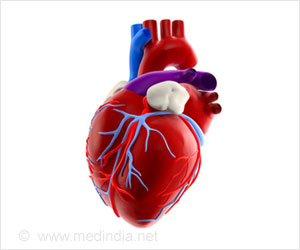Some studies have also shown that poor sleep is associated with a heightened risk of infectious disease and could make some vaccination less effective.
Research showing a potential link between poor sleep and reduced immune response raises timely questions about whether climate change results in heightened infectious disease risk amid the ongoing COVID-19 pandemic, a monkeypox outbreak, and the re-emergence of the poliovirus in New York and London.
Advertisement
The issue also raises important implications about disparities, since low-income communities and communities of color face heightened risk from heat and have less access to air conditioning.
How Does Poor Sleep Affect the Immune System?
There is a strong association between sleep and thermoregulation, or how humans maintain a steady core internal temperature.
Experimental studies have shown that reducing air temperatures to a range in which humans can maintain a normal body temperature without expending excess energy improves sleep quality, while increases in air temperature result in increased wakefulness[2].
Survey data of 765,000 people in the United States also found increases in nighttime temperatures amplified self-reported nights of insufficient sleep, with the largest effects during the summer and among lower-income and elderly people.
It’s thought that sleep helps prepare the body’s response to possible injury or infection that could occur the following day. When sleep is disrupted, that contributes to increases in inflammation and dampens the body’s ability to fight off infections.
That means there may be heightened risk among older adults and patients with inflammatory disorders, like cardiovascular disease and some types of depression, who have a higher prevalence of insomnia. Some small experimental studies in humans indicate that poor sleep could also result in poorer vaccine response.
Sleep duration is also associated with infectious disease risk outcomes. Basic research has shown that longer sleep leads to decreases in bacterial load and improved survival in a variety of infectious disease models. Self-reported surveys have also shown an association between shorter sleep and higher infection risk.
While there’s abundant evidence that sleep disturbance and depressive symptoms have greatly increased during the COVID-19 pandemic, there’s little known about how poor sleep may be affecting the risk of COVID-19 infection and outcomes.
However, a recent study of over 46,000 patients indicated that a significant sleep disturbance was associated with an over 2-fold increase in the mortality risk for patients who had COVID-19, while no similar association was found in those who did not[3].
Future research on this topic should evaluate how altering ambient temperatures affect sleep and, as a result, immune function. There should also be a focus on how rising ambient temperatures may be affecting diverse and disadvantaged communities.
References:
- Daniel I. Rifkin, Michael W. Long, Melissa J. Perry. Climate change and sleep: A systematic review of the literature and conceptual framework. Sleep Medicine Reviews. Volume 42,2018, Pages 3-9. (. https:doi.org/10.1016/j.smrv.2018.07.007)
- Besedovsky L, Lange T, Born J. Sleep and immune function. Pflugers Arch. 2012 Jan;463(1):121-37. (DOI: 10.1007/s00424-011-1044-0.)
- Michael R. Irwin (2022) Sleep disruption induces activation of inflammation and heightens the risk for infectious disease: Role of impairments in thermoregulation and elevated ambient temperature, Temperature. (DOI: 10.1080/23328940.2022.2109932)
Source: Medindia



